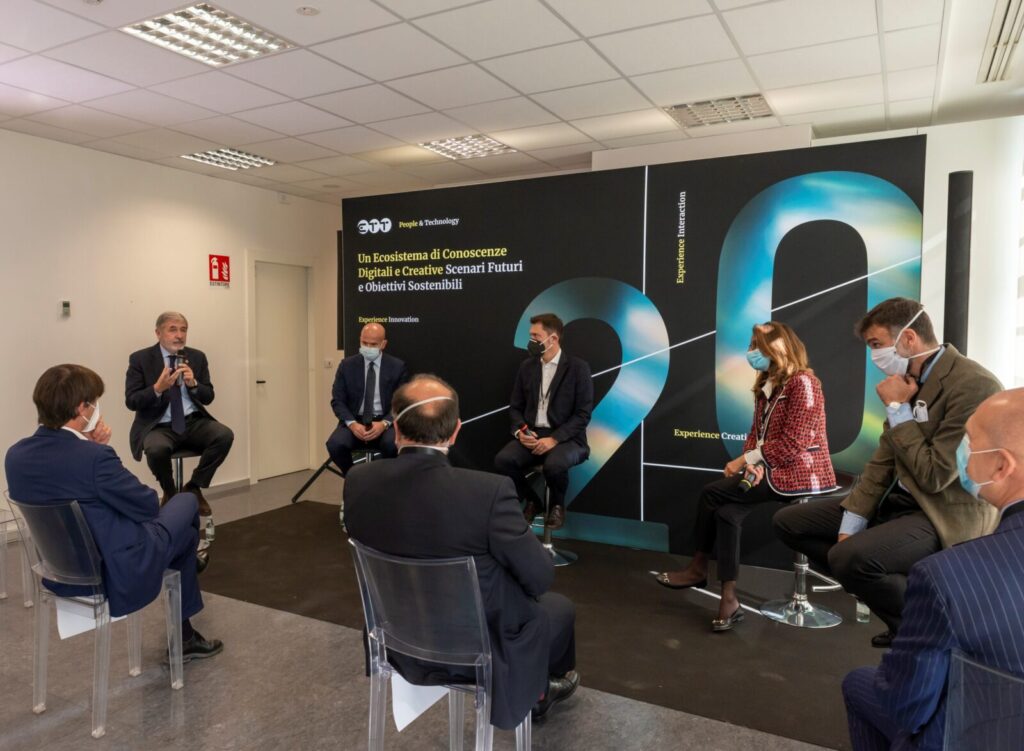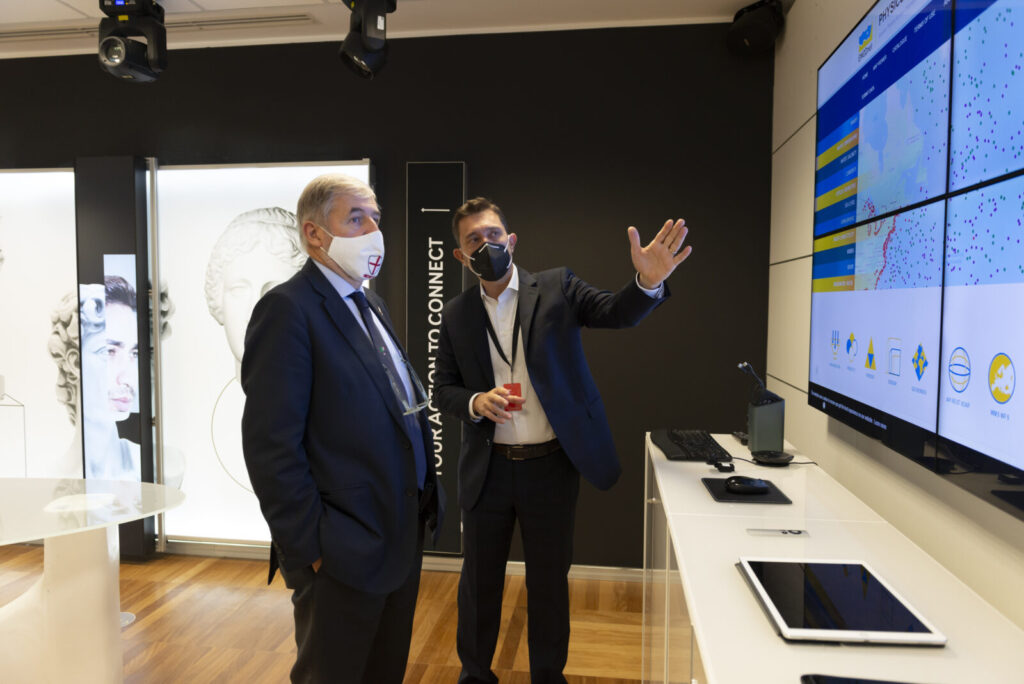
At the 20-year mark, ETT is continuing to search for new digital talents: architects, creative minds and interaction designers but also computer scientists, engineers, developers and experts in the arts are the profiles that meet the needs of Genoa’s creative digital industry.
In 2019 ETT exceeded 15Ml € in turnover (+ 17.8% 2019 vs 2018) and 22Ml € at group consolidated level Genoa, 16 October 2020 – Engineers, developers but also experts in the arts, architects, web designers, and creative minds are the talent profiles sought by ETT, a digital and creative industry with headquarters in Genoa but present throughout Italy, which had a turnover of 15Ml € in 2019 (+ 17.8% compared to 2018 and with a forecast of more than 15 Ml € at the end of 2020) and 22 Ml € at group consolidated level.
New talent is intercepted by ETT using an innovative procedure, favouring spontaneous applications made through online digital scouting platforms. The candidates can propose themselves not only by responding to searches, but also by sending creative material, such as project videos and ideas. On its 20th anniversary, ETT took stock of its growth and new goals at the group’s new headquarters in Genoa, in the presence of former Regional Councillor Ilaria Cavo, Mayor Marco Bucci and the CEO of the SCAI Group to which ETT belongs, Massimiliano Cipolletta. “Despite experiencing such a difficult year as this one due to the pandemic, ETT has not only managed to maintain the positions it had acquired until 2019, but also expanded its scope of action by responding to the acceleration of digitisation demands in the most diverse areas from across the country. ETT, already a leader in the field of digital management and enhancement of Italy’s cultural museum heritage, found itself deploying its own resources, and enlisting new ones (the workforce increased by 12% between 2019 and 2020), to manage innovative projects,’ said ETT founder and CEO Giovanni Verreschi.
Aware of this challenge, ETT’s management responded by deploying the wide range of skills within its organisation. Interaction designers, storytellers, product managers, and software developers are just some of the professional skills that can be found when meeting the 150 people who make the company unique in Italy, i.e. a company capable of handling variable and complex work contexts. At the moment, it also emerged in the course of the morning, that there are 5 open positions at ETT: two senior software developers (Genoa and Rome), a mobile developer (Genoa), a digital graphic designer (Genoa), and an account manager (Rome), but the search for spontaneous creative applications is continuous.
“The thing that must be kept in mind,’ Verreschi emphasises, ‘ is the overall, I would say holistic, view that individual projects require. In fact, in order to solve the problems we are gradually facing, we need to be aware of the main objectives of our activity, which is first and foremost to contribute with the weapons of creativity and digital to sustainable growth‘. The meeting was also an opportunity to take stock of the achievements made to date since the founding year, in particular analysing the occasions that have most contributed to deepening and broadening the background of the skills created within the Genoese digital factory. First of all, what has been described as the stepping stone of ETT’s performance throughout its history, namely the Smart Government experience with the PA and the Ministry of Labour, was discussed. Projects such as SIL Sistema Informativo Lavoro, CO – Compulsory Communications, Informatisation of Job Centre services, Employment Market Observatory, have consolidated ETT’s reputation within the PA, to such an extent that it has become a national benchmark and reference point in the field of digitisation. In fact, the extension of ETT’s field of intervention to the digitisation of tours in the Italian museum system, in the division dedicated to Digital Strategy and Design takes its cue from this experience: some examples are The Dante House Museum, the Cenacolo Vinciano, the Genoa Aquarium, the Teatro alla Scala Museum or the solutions in the private manufacturing sectors, such as for the Prada Foundation, the Lamborghini Museum, LVMH Acqua di Parma, Bulgari , Mercedes, BMW, Unipol SAI, Intesa San Paolo. A total of 120 resources were involved, completing 1500 projects on a global scale, for 960 customers.
On the other hand, there has also been a considerable focus on the projects implemented in the Smart City sector. In this field, ETT’s importance is mainly due to the grounding of projects such as EMODnet Physics, a true platform for observing the seas that has grown from a European experience to a global one, SINDBAD, an advanced operational service to support accessible yachting and tourism navigation, or even GRISIS – Risk Management and Safety of Infrastructures on a Regional Scale, or Sentinel – the project that aims to develop and implement an intelligent integrated dynamic vehicle weighing system. In summary, the Smart City applications aim to plan and optimise management processes. “ETT’s ability to specialise, within a Group like Scai, whose development driver is innovation, combined with a holistic view of the individual problem, have enabled ETT to achieve goals beyond expectations in 20 years, exceeding a production value of €15 million, which places it in a leading position in the sector, even within a difficult but at the same time challenging situation for the digitisation of our country,” concluded Massimiliano Cipolletta, CEO of the SCAI Group.

